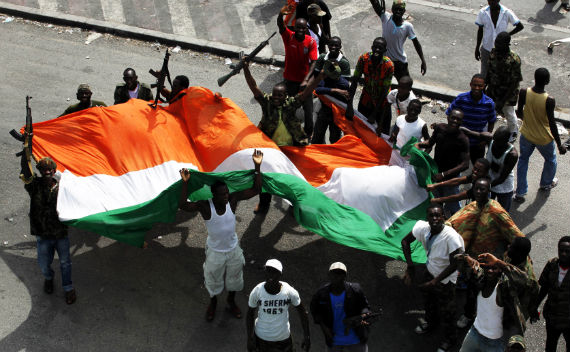Ouattara Assumes Power in Cote d’Ivoire While Nigerians Headed to the Polls
More on:

Laurent Gbagbo is in the custody of Alassane Ouattara, the internationally recognized president of Cote d’Ivoire as of the November 2010 elections. Ouattara will need to reach out to Gbagbo’s base support if he is to address the divisions that bedevil the country. To do that, Ouattara can draw on the legitimacy he derives as the winner of credible elections, the support he enjoys from the international community, and the Ivorian political experience he possesses. Restoration of the economy would facilitate his domestic outreach. As I wrote last week, involvement by the International Criminal Court could complicate internal reconciliation, though atrocities are attributed to both Gbagbo and Ouattara’s forces.
Ouattara’s legal assumption of the presidency is bound to encourage others in West Africa working toward democracy. In Nigeria, the weekend saw the first of a series of three elections, each a week apart. On Saturday, Nigerians voted for members of the National Assembly. This Saturday, April 16, Nigerians will vote for a president and on Tuesday, April 26 for governors and local officials. Because of the size and complexity of Nigeria, it is too early to say how the voting this past Saturday went. Attahiru Jega, the Chairman of the Independent National Electoral Commission, estimates a voter turn-out of in the range of 75 to 85 percent. However, in certain parts of the country, I am hearing that turnout was often less than 50 percent. In the past, the electoral Commission has rigged the votes by exaggerating voter turnout.
More on:
 Online Store
Online Store